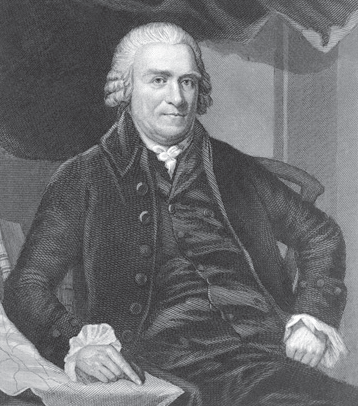In 1743, a twenty-year-old student mounted the podium at Harvard’s graduation to give the college’s commencement speech. With the British governor of the Massachusetts colony in attendance, the young man delivered an oration— entirely in Latin—that would prove prescient: Citizens, he declared, had the natural right to resist governments that failed to protect their welfare.

The student was Samuel Adams (1722–1803), the son of a Boston brewer. Twenty years later, Adams would reemerge as the leading opponent of British rule, organizing the widespread discontent in Boston into a resistance movement that eventually sparked the American Revolution.
Until he found his calling as a troublemaker, however, Adams was generally considered a failure. Unable to manage money, Adams inherited his father’s brewery but ran the business into the ground. He started a newspaper that was financially unsuccessful. He was elected Boston’s tax collector, but was too softhearted to collect taxes.
The passage of the Stamp Act in 1765, a tax on paper and other goods, engendered widespread opposition in Boston and reawakened the rebellious spirit Adams had expressed in his graduation speech. In newspapers and at civic meetings, he inveighed against British taxes and urged resistance in the form of boycotts. He later helped organize an underground resistance group, the Sons of Liberty, which carried out the Boston Tea Party in 1773 to protest a tax on tea.
In 1775, tensions erupted into rebellion when the British attempted to arrest Adams and a fellow agitator, John Hancock (1737–1793). The next year, Adams and Hancock both signed the Declaration of Independence.
After the war, Adams played a less prominent role in politics. He served one term as governor of Massachusetts and lived to see the election of his younger cousin, John Adams (1735–1826), as the nation’s second president. Samuel Adams died at age eighty-one in Boston.
ADDITIONAL FACTS
- The Samuel Adams brand of beer was founded in 1985. Despite the prominent picture of Adams on the label, the company has no relation to the Revolutionary War figure.
- At the Continental Congress in 1775, the Adams cousins proposed the nomination of George Washington (1732–1799) as commander in chief of the Continental Army—passing over Hancock, who wanted the job despite his lack of military experience.
- Adams’s son, Samuel Adams Jr. (1751–1788), served as a doctor in Washington’s army. He became ill during the war, never recovered enough to practice medicine again, and died of tuberculosis.
